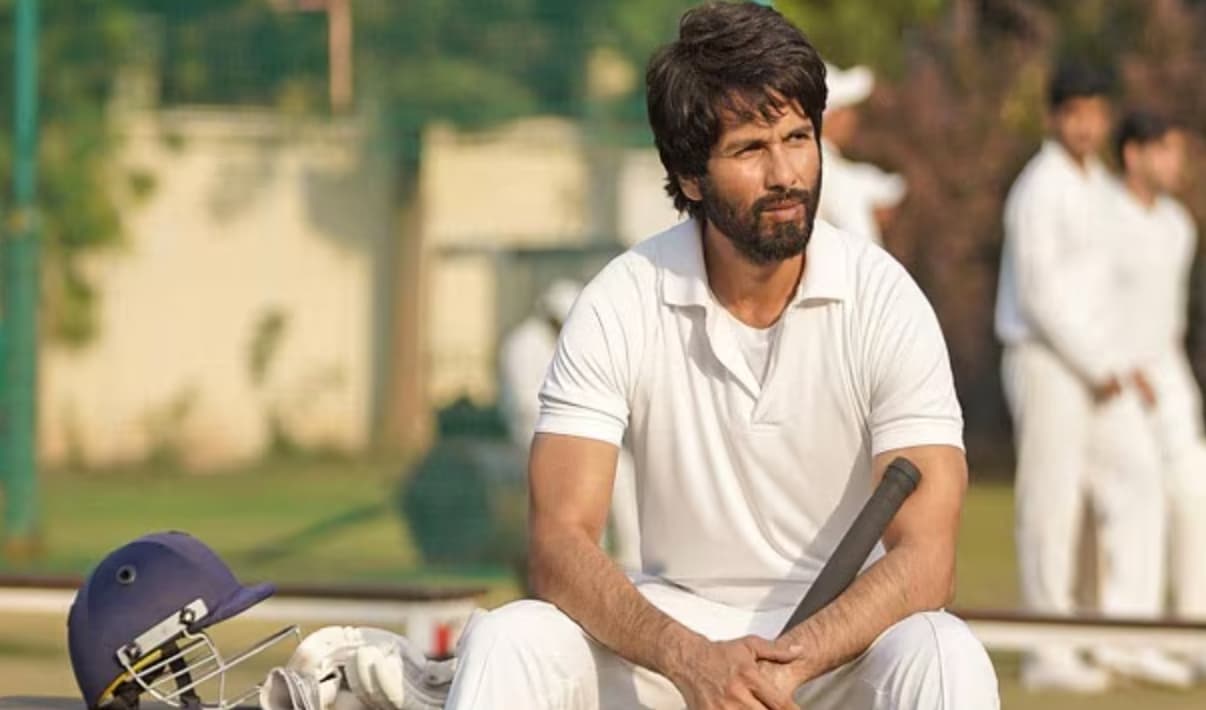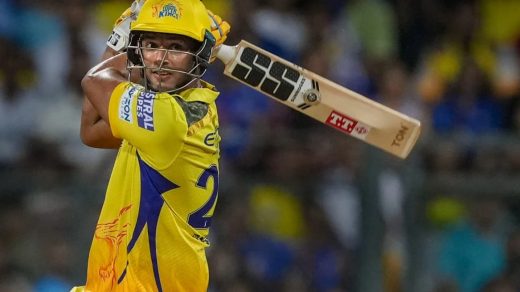When the credits rolled at the end of “Jersey,” audiences weren’t just leaving with memories of another sports film—they were carrying with them the indelible story of Arjun Talwar, a character whose journey transcended the boundaries of fictional cinema.
This 36-year-old cricketer, brought to life first by Nani in Telugu cinema and later by Shahid Kapoor in Hindi, represents far more than another sports hero narrative.
Arjun Talwar embodies the complexities of unfulfilled potential, the burning desire for redemption, and the ultimate sacrifice of a father’s love.
His character arc—from promising talent to disgraced player to comeback sensation—offers a rich psychological landscape that few sports films have managed to capture with such nuance and emotional resonance.
Through the lens of this fictional cricketer, “Jersey” explores universal themes of ambition, failure, family, and second chances that resonate far beyond cricket enthusiasts.
Arjun Talwar Cricketer

This article examines the multidimensional character of Arjun Talwar, unpacking the layers of this fictional sports icon who has earned a permanent place in cinematic history.
Character Background and Storyline
Arjun Talwar’s storyline begins with profound disappointment. Once considered among the most promising talents in domestic cricket, his career came to an abrupt halt following allegations of corruption. Though never conclusively proven, these charges were enough to see him suspended from government service and effectively ending his cricketing career.
A decade later, we encounter Arjun as a shell of his former self. Unemployed and struggling with his identity, he subsists largely on his wife Vidya’s income. Their financial situation remains perpetually precarious, with Arjun repeatedly failing to secure stable employment—partly due to circumstances but also because of his lingering resentment and wounded pride.
The narrative pivots when his son Ketan “Kittu” Talwar asks for an Indian cricket team jersey as a birthday gift. The seemingly simple request proves financially impossible for the struggling family, pushing Arjun to a crossroads.
Rather than admit defeat, Arjun makes the extraordinary decision to return to cricket at age 36—an age when most players have long retired. His return is initially met with skepticism, mockery, and outright resistance from the cricketing establishment.
Through sheer determination, Arjun overcomes physical limitations, rust from years of inactivity, and institutional barriers. His comeback performances gradually silence critics as he displays not just his former skill but new dimensions to his game forged through life experience and desperation.
The storyline reaches its emotional crescendo when Arjun’s remarkable performances earn him selection to the national team—the ultimate vindication. However, triumph turns to tragedy when, just two days after celebrating this achievement, Arjun dies from a heart condition he had been battling silently throughout his comeback.
The poignant final scenes reveal that his son receives not just any jersey, but his father’s actual national team jersey—a symbol of both extraordinary achievement and ultimate sacrifice.
Inspiration Behind the Character
The character of Arjun Talwar draws significant inspiration from the life and tragic death of Raman Lamba, an Indian cricketer who died in February 1998. Lamba was struck by a cricket ball while fielding at short leg during a match in Bangladesh, suffering a fatal brain injury at age 38.
While the specific circumstances differ dramatically, both stories share themes of talent cut short by tragedy and unfulfilled potential. Director Gowtam Tinnanuri has acknowledged this inspiration while crafting a fictional narrative that stands independent of Lamba’s actual life story.
Beyond this specific influence, Arjun Talwar’s character incorporates elements familiar to many aging athletes:
- The psychological struggle of identity when a sports career ends prematurely
- The physical challenge of attempting high-level competition after years of inactivity
- The institutional skepticism faced by older athletes attempting comebacks
- The complex family dynamics when a parent’s sporting ambitions impact household stability
The character also reflects broader societal themes relevant to modern India:
- The precarious nature of public service employment
- The financial pressures facing middle-class families
- The cultural importance of cricket as both a sport and a potential pathway to economic stability
- The psychological impact of corruption allegations, whether founded or unfounded
Through these varied inspirations, Arjun Talwar emerges as a character both specifically Indian in context yet universally relatable in his struggles, making him accessible to diverse audiences both domestically and internationally.
Portrayal by Actors
The character of Arjun Talwar has been immortalized through two distinct yet equally compelling performances by acclaimed actors from different Indian film industries:
- Nani (Telugu, 2019): Ghanta Naveen Babu, professionally known as Nani, originated the role in the Telugu film. His portrayal stands out for its remarkable restraint and naturalism. Nani’s approach to Arjun emphasized the character’s quiet dignity even in profound failure, with emotional moments landing with greater impact precisely because of their scarcity.
- Shahid Kapoor (Hindi, 2022): When the film was remade in Hindi, Shahid Kapoor reinterpreted the character with his distinctive approach. Kapoor brought a more visceral intensity to Arjun’s frustrations and a more demonstrative emotional range throughout the character’s journey.
Both performances required extraordinary physical preparation. The actors underwent months of cricket training to develop believable technique, especially for the batting sequences that showcase Arjun’s unique playing style. They also navigated the challenge of portraying the character across different age ranges, requiring subtle physical transformations to convey the passage of time.
The following table illustrates key differences in how these two acclaimed actors approached the same character:
| Performance Element | Nani’s Interpretation | Shahid Kapoor’s Interpretation |
|---|---|---|
| Emotional Expression | Internalized, with emotions often communicated through micro-expressions | More externalized, with more visible emotional outbursts |
| Physical Transformation | Focused on subtle changes in posture and energy to show age differences | Emphasized physical conditioning contrasts between younger and older Arjun |
| Cricket Technique | Developed a technically sound but unorthodox batting style | Worked with professional coaches to create a more classically elegant technique |
| Father-Son Dynamic | Quiet moments of connection, emphasizing unspoken understanding | More verbally expressive affection, with more dramatic confrontations |
| Portrayal of Decline | Gradual, subtle deterioration | More pronounced contrasts between success and failure states |
The different interpretations have led to fascinating discussions among film critics about the character’s essential nature. Some argue Nani captured Arjun’s stoic resilience more authentically, while others contend Kapoor’s more emotionally transparent approach made the character more accessible to mainstream audiences.
Themes and Legacy
The character of Arjun Talwar has become a vessel for exploring several profound themes that resonate far beyond the cricket field:
- Redemption Beyond Victory: Unlike most sports narratives where redemption comes through winning, Arjun’s story suggests that true redemption lies in the courage to try again regardless of outcome. His willingness to face public ridicule in pursuit of a personal goal redefines what constitutes victory.
- Fatherhood as Motivation: The character subverts traditional sports film tropes by centering not on personal glory but on parental sacrifice. Arjun’s comeback is motivated entirely by his son’s happiness rather than ego, offering a refreshing alternative to conventional sports hero narratives.
- Age as Advantage: Through Arjun’s journey, the film explores how maturity and life experience can compensate for diminishing physical capability. His comeback showcases not just restored skills but new dimensions to his game impossible without the wisdom gained through suffering.
- Identity Beyond Profession: Arjun’s struggle after losing his cricketing career examines the dangerous conflation of professional achievement with personal worth. His journey forces both character and audience to question how we define ourselves beyond our occupations.
The legacy of Arjun Talwar extends beyond the film itself, influencing subsequent sports narratives in Indian cinema. The character has:
- Challenged the typically triumphalist structure of sports films by embracing tragic elements
- Expanded the age range of protagonists in sports dramas, creating space for stories about older athletes
- Deepened the psychological complexity expected from characters in commercial Indian cinema
- Connected sports achievement to family dynamics in ways that broaden audience engagement beyond sports enthusiasts
Perhaps most significantly, Arjun Talwar has become a reference point in discussions about second-act careers, not just in sports but in professional life generally. The character embodies the increasingly common experience of reinvention in middle age, making him relevant in contemporary conversations about career longevity and professional resilience.
Arjun Talwar in Popular Culture
Though entirely fictional, Arjun Talwar has transcended the boundaries of the films that created him, becoming a cultural touchstone referenced across various contexts:
- Sports Commentary: Professional cricket commentators occasionally invoke Arjun Talwar when discussing real-life comeback stories or older players defying age expectations. The character has become shorthand for against-all-odds sporting narratives.
- Motivational Contexts: Business seminars and motivational speakers regularly cite Arjun’s fictional journey when discussing professional resilience and career reinvention. His story resonates particularly with audiences facing mid-career challenges or setbacks.
- Parenting Discourse: The character has entered conversations about fatherhood and parental sacrifice, with his extreme dedication to fulfilling his son’s wish becoming a metaphorical reference point when discussing parental commitment.
- Merchandise and Memorabilia: Though not officially licensed, fan-created “Arjun Talwar” jerseys have appeared at cricket matches and online marketplaces, demonstrating how thoroughly this fictional character has penetrated real-world fan culture.
- Social Media Presence: Dialogue and scenes from both film versions regularly circulate as motivational content across platforms like Instagram, Twitter, and WhatsApp, often detached from their original fictional context and presented as inspirational life lessons.
The character has also influenced subsequent fictional sports narratives across Indian cinema and television. Elements of Arjun’s psychological complexity and non-traditional motivations have appeared in numerous productions following “Jersey,” suggesting a shift away from simpler sports hero archetypes toward more nuanced character development.
What makes this cultural impact particularly remarkable is that, unlike many fictional characters who become cultural touchstones, Arjun Talwar emerged not from a long-running series or franchise but from a single narrative. The depth of his characterization has allowed him to achieve cultural relevance typically reserved for characters with much more extensive fictional histories.
Frequently Asked Questions
- Was Arjun Talwar a real cricketer?
No, Arjun Talwar is entirely fictional. He exists only as the protagonist of the film “Jersey,” portrayed by Nani in the Telugu version and Shahid Kapoor in the Hindi remake.
- What was Arjun Talwar’s age in the movie?
Arjun Talwar is portrayed as 36 years old during his comeback attempt, considered quite advanced for professional cricket competition.
- Why did Arjun Talwar stop playing cricket initially?
According to the film’s narrative, Arjun was suspended from his government position due to corruption allegations, which effectively ended his cricket career.
- What motivated Arjun Talwar to return to cricket?
His primary motivation was to earn enough money to buy his son an Indian cricket team jersey that the family could not otherwise afford.
- Is the movie “Jersey” based on a true story?
While the character of Arjun Talwar draws some inspiration from real cricketer Raman Lamba, who died tragically in 1998, the specific narrative of “Jersey” is fictional.
- How does Arjun Talwar die in the movie?
Arjun dies from heart disease shortly after achieving selection to the national team. The film implies he had been battling this condition throughout his comeback.
- Which actor played Arjun Talwar first?
Nani (Ghanta Naveen Babu) first portrayed Arjun Talwar in the original Telugu version of “Jersey” released in 2019.
- Did the actors who played Arjun Talwar know cricket before the film?
Both Nani and Shahid Kapoor underwent extensive cricket training specifically for their roles, working with professional coaches to develop convincing technique.
- What awards did the portrayal of Arjun Talwar win?
Nani’s performance won several accolades, including the Filmfare Award South for Best Actor, while the film itself received numerous awards for direction and screenplay.
- What is the significance of the jersey in the film?
The jersey represents both Arjun’s past glory and his son’s admiration. By the film’s conclusion, it transforms into a symbol of ultimate paternal sacrifice when his son receives Arjun’s actual national team jersey posthumously.
Also Check:
Conclusion:
Arjun Talwar represents a significant achievement in character creation within Indian cinema.
Through this fictional cricketer, filmmakers have crafted a protagonist who functions simultaneously as a sports hero, a tragic figure, a devoted father, and a symbol of resilience—a multidimensional character whose appeal extends far beyond cricket enthusiasts.
The character’s enduring impact stems from his ability to embody contradictions: he is both exceptional and ordinary, both triumphant and defeated, both stubborn and selfless.
These complexities elevate him beyond typical sports film protagonists, creating a character that rewards repeated viewing and deeper analysis.
Perhaps most significantly, Arjun Talwar offers a rare cinematic example of glory defined not by traditional success but by the courage to attempt the impossible for love.
In a genre often defined by winning at all costs, his story suggests that true victory might lie in why we compete rather than whether we triumph.
As both Telugu and Hindi versions of “Jersey” continue finding new audiences through streaming platforms, the legend of Arjun Talwar grows ever larger.
Though he never existed beyond the screen, his journey continues to inspire real emotions and genuine reflection—the ultimate testament to the power of fictional characters to illuminate truth.



